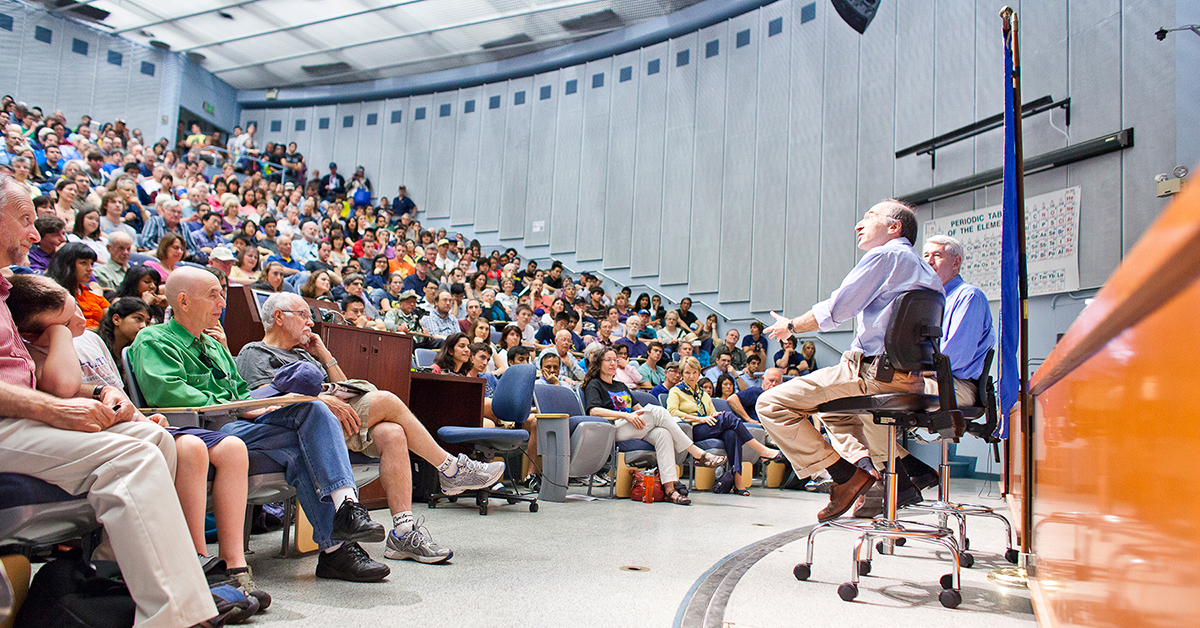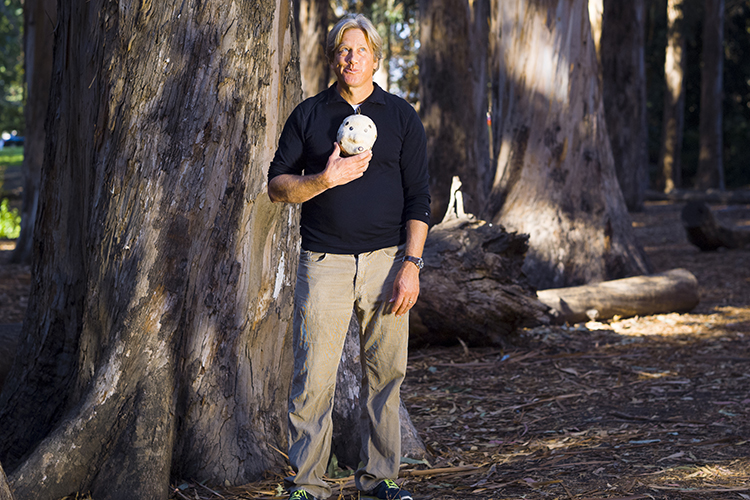From wildfires to Frank Ocean, here are a few cool classes offered this fall
Want to research with a Nobel laureate or think about the art of migration? Those are a few among the many courses offered this fall

August 17, 2018
From graduate-level biology classes taught by Nobel laureates to student-led discussion groups on popular music and cooking, UC Berkeley will offer a wide array of rigorous, exciting – and yes, sometimes quirky – classes to students this fall.
Berkeley News scoured the course catalog to find some of the most interesting classes available to Berkeley’s graduate and undergraduate students.
As California burns, understand what wildfire means to in our culture
Californians haven’t always dreaded the fire season, and a new lower-division course from two of UC Berkeley’s top experts on wildfire and California anthropology aims to help students understand how our interactions with fire have changed over the centuries.
The class, FIRE: Past, Present and Future Interactions with the People and Ecosystems of California, is cross-listed in the anthropology and environmental science, policy, and management departments.
“I think it sets up you to understand the environment of California, how you fit into that environment,” says instructor Scott Stephens, a professor of fire science. “You see fire portrayed as a demon sometimes, but there is also another aspect to it that is fundamental to our ecosystem.”

The cover image of a DeCal course on Frank Ocean taught at UC Berkeley. (Courtesy of UC Berkeley junior Sitara Bellam)
A student-led course gets to the bottom of Frank Ocean’s inscrutable lyrics
Are you a fan of Frank Ocean’s intricate, symbolic lyrics and musical style? Two second-year students have organized a weekly student-led class devoted to understanding and interpreting Ocean’s critically acclaimed music, which has appeared on bestselling albums like Channel Orange and Blonde.
The DeCal class is sponsored by the English Department and promises two units of pass-fail credit to students who participate in discussion, complete interpretive projects and write a final paper.
“We hope that people will gain a greater understanding of Frank Ocean’s artistry and the way he challenges hypermasculinity and gender politics,” says instructor Preya Gill, 19, an English major minoring in creative writing. “We really want to prove to people that he has a place among so many poets that we study and read about.”

Students taking the course will get free tickets to the Berkeley Art Museum and Pacific Film Archive.
What can art and design teach us about human migration?
Humans have fled brutality or sought a better life in new locations for centuries, and this undergraduate course will use UC Berkeley’s collections of artistic works to explore how that experience has been understood and interpreted by artists working in literature, film, visual art, performance and design.
The course, called Thinking Through Art and Design@Berkeley: Creativity, Migration, Transformation, is taught by Alex Saragoza, a professor of ethnic studies and will be held twice a week at BAMPFA, the Berkeley Art Museum and Pacific Film Archive.
“The approach to the course will be relational and comparative in nature, taking into account the diverse experiences of migrants and immigrants — past and present — so to highlight the commonalities and differences of Latino migration with that of others,” Saragoza writes in the course description.
Students will receive free tickets to selected arts events and exhibits on campus or in the surrounding Bay Area.

Dacher Keltner’s course will examine human happiness. (UC Berkeley photo by Elena Zhukova)
What makes us happy? It isn’t always social media
Is defining happiness a question of philosophy or can we answer it with evolution, behavioral studies and neuroscience? That’s the question psychology professor Dachner Keltner aims to answer in his upper-division Discovery Course called Human Happiness.
Keltner, who is also co-director of Berkeley’s Greater Good Science Center, regularly speaks about the importance of touch, compassion and connection when it comes to happiness and is the author of Born to Be Good: The Science of a Meaningful Life.
His popular course will begin by studying how classical Greek, Judeo-Christian, East Asian and Enlightenment thinkers understood happiness before turning to science to understand “how happiness arises in experiences of the moral emotions, including gratitude, compassion, reverence and awe, as well as aesthetic emotions like humor and beauty,” according to the course description.

UC Berkeley Professor and Nobel laureate Saul Perlumutter gives a lecture. (UC Berkeley photo by Elena Zhukova)
Just show me the science
If you’re a graduate student studying biology, don’t miss the chance to take a seminar with Randy Schekman, a professor of molecular and cell biology who also just happens to have won a Nobel Prize in 2013 for his work revealing the machinery that regulates the transport and secretion of proteins in human cells.
Schekman’s 21-person class, Research Review in Cell and Developmental Biology: Secretion and Cell Membrane Assembly, promises to help graduate students understand “cell surface growth with emphasis on the unicellular eukaryote S. cerevisiae,” according to the course description.
Schekman is one of seven Nobel laureates on UC Berkeley’s faculty, some of whom teach courses introducing undergraduates to basic scientific concepts, like the lower-division Sense and Sensibility and Science course that 2011 Physics Nobel Prize winner Saul Perlmutter taught in the spring.
Want to find more interesting classes? Visit classes.berkeley.edu
Contact Will Kane at [email protected]